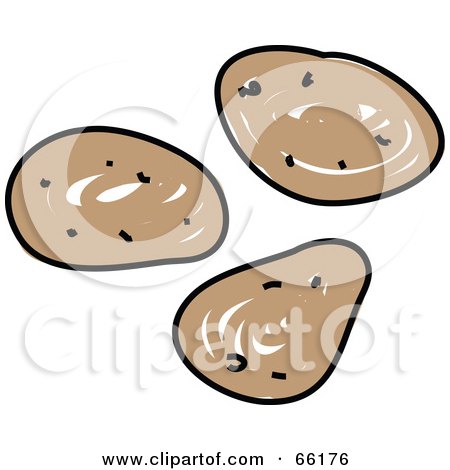Consider starting your own herb garden,
Showing posts with label earth science. Show all posts
Showing posts with label earth science. Show all posts
Tuesday, May 31, 2011
Teaching Kids About the Plant Life Cycle
Although school might be out for most people right now, you can still use the summer garden to help teach your kids about the plant life cycle. Try growing beans in a cup, or plant some partially grown plants — like tomato plants — in your garden to show your kids the circle of life, er plant life. Check out THIS ARTICLE on how homeschoolers, non-schoolers, parents or teachers can teach kids about plants.
Consider starting your own herb garden, just buying a few potted plants to encourage the little scientist to get interested in plants. Use the summer months to let them journal about how the growing plants change
just buying a few potted plants to encourage the little scientist to get interested in plants. Use the summer months to let them journal about how the growing plants change . Check out the book "Get Growing" by Louis Walker
. Check out the book "Get Growing" by Louis Walker for into integrating even more plant projects!
for into integrating even more plant projects!
Consider starting your own herb garden,
Labels:
earth science,
elementary school,
plants
Thursday, January 6, 2011
Paper Mache Volcano Project
Nothing screams science project like paper mache or a volcano model. So why not combine the two into one project?
The paper mache model certainly is more portable than the clay model, and a lot less costly too, so gather some newspaper and get your inner crafter going with THIS simple project appropriate for elementary and middle school classrooms.
The paper mache model certainly is more portable than the clay model, and a lot less costly too, so gather some newspaper and get your inner crafter going with THIS simple project appropriate for elementary and middle school classrooms.
Labels:
earth science,
science activities,
volcano
Sunday, September 5, 2010
Up in the Clouds- Science Project Info
So you're thinking of conducting a science project on clouds.... it's a great and interesting topic!
Before settling on the exact project, consider a few things by reading THIS article. You'll gain a better understanding of what a cloud science project might entail, and gain a few ideas of how you can go about the project
Before settling on the exact project, consider a few things by reading THIS article. You'll gain a better understanding of what a cloud science project might entail, and gain a few ideas of how you can go about the project
Thursday, April 15, 2010
Floating Magnet Science Projects
Teach students about the unusual power of magnets by conducting an activity that makes magnets
by conducting an activity that makes magnets float. YES Float! Follow the link above for detailed instructions and information on how magnets are so cool!
float. YES Float! Follow the link above for detailed instructions and information on how magnets are so cool!
Labels:
earth science,
magnets,
teaching science
Saturday, February 6, 2010
Expansion & Contraction Science Projects
 |
| Photo from zole4 |
Follow THIS link to eHow.com, for three science projects on expansion and contraction from our egghead. Check out THIS
Sunday, January 24, 2010
High School Filler Activities
 Occasionally teachers may have some time left over after the normal lesson plan has been finished. Instead of allowing students to waste time by socializing, have some filler activities that will review and reinforce what has been taught in the class.
Occasionally teachers may have some time left over after the normal lesson plan has been finished. Instead of allowing students to waste time by socializing, have some filler activities that will review and reinforce what has been taught in the class.Our Egghead has provided a list of filler activities, including games and trivia, for high school and middle school Literature, History, Geography, Science, and Mathematics classrooms. Please follow the link below to eHow:
High School Filler Activities eHow.com
Labels:
arithematic,
earth science,
english,
games,
geography,
high school,
history,
literature,
middle school
Friday, December 18, 2009
Life Cycle of Potato Plants
Potato are for more than just eating... potato plants are fun to experiment with in elementary school. I mean, who wouldn't love to see those nubby "eyes" turn into roots in a cup of water?
For information on the entire life cycle of the potato plant click HERE for an article written from Egghead.
For a cool experiment on how to turn a potato into a clock click HERE
on how to turn a potato into a clock click HERE or HERE
or HERE .
.
For information on the entire life cycle of the potato plant click HERE for an article written from Egghead.
For a cool experiment
Labels:
earth science,
plant,
potato,
science activities
Friday, September 4, 2009
How to Make a Pinwheel Science Project for First-Graders
Everyone loves to play with pinwheels. But did you know that they can also help teach about an important scientific principle? Forming your own pinwheels is a simple process, and can be completed using a few common household items.
Follow THIS LINK for detailed instructions on how to create your own pinwheel with common household supplies.
Follow THIS LINK for detailed instructions on how to create your own pinwheel with common household supplies.
Labels:
air,
earth science,
elementary,
pinwheel
Subscribe to:
Posts (Atom)


